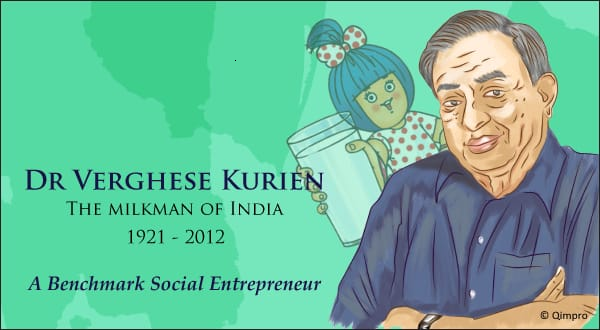Leadership Benchmarking: A taste of India

Coronavirus War
Pre- Coronavirus War, life in India was substantially driven by greed. Most of us were deaf to Mahatma Gandhi’s appeal to differentiate between greed and need.
The vision of our leaders, over the past 70 years, had been to create extraordinary wealth in Business, Healthcare, Education, and Government. Towards this end, they have been significantly successful.
However, during the current Coronavirus War, there has been a major shock for these leaders. The virus does not segment the population based on wealth, income, geography, religion, caste, etc. Coronavirus sees all humans as being equal. Globally. Lesson learned.
Post-Coronavirus War, whenever that happens, we will all perhaps be on the same starting blocks. Introducing innovative products, processes, practices, and policies.
Empathetic Listening
Over these same seven decades, there have been some outliers amongst the wealth creators..
These exceptional leaders have always attached great importance to the needs of Mother Earth, Society, Employees, and Customers. Usually, in that sequence.
In addition, these leaders, have had one common skill. They are good listeners.
What makes this unique?
It should be noted that our schools teach us the skills of reading, writing, seeing and hearing. That’s good. Unfortunately, they do not teach us listening. Particularly, empathetic listening.
Great leaders are empathetic listeners.
In the words of Stephen Covey, the behavioural scientist, “Seek first to understand; then to be understood.”
Leadership Attributes
In addition, these leaders are trustworthy in terms of character: integrity with respect to keeping promises; maturity in defining problems, objectively; and abundance mentality to arrive at win-win solutions.
They lead organizations that have, in turn, earned the reputations of being trustworthy. Over at least five decades. Globally.
These great leaders also have:
- A clear vision for the organization they are leading. The vision has a clear or implied customer focus. They ensure the vision is shared by the leadership team, and is understood by each employee.
- Principle driven values. These values are constant from generation to generation. Over multiple decades.
- Respect for Mother Earth. They believe humans are part of the guest list on Earth.
- Respect for society. They provide support for basic needs – healthcare, education, food, infrastructure.
Great leaders are good trainers, coaches, counsellors, and facilitators. Non-negotiable leadership attributes.
In the words of Dr J M Juran: “Be a leader. Not a cheerleader.”
Indian Corporate Groups
Can you think of any Indian Corporate Groups that have cemented a positive leadership culture? That they are considered absolutely trustworthy? That they enjoy supreme customer loyalty through economic cycles, as well as vicious global competition?
I have a biased answer. It is based on my interaction with select Groups over the past three decades. My interaction has been restricted to consulting on Quality Management and Performance Excellence. For a substantial period I was engaged with multiple business units in the following Groups: Tatas, Aditya Birla, Bajaj, Mahindra, and Marico.
I also have a telescopic admiration for the leadership foundation at the Amul, Wipro, Godrej, and HDFC Groups.
All these Groups have proven themselves. The credit belongs to the leadership.
I wish to add, another dimension. Each of the leaders has always put the nation first.
These leaders need to be benchmarked.
Respect of Workers
Workers are not stupid.
Leadership is a gift from the workers. They allow you to lead. Any fracture in this equation, and the leader falls.
Leaders must walk their talk. They know that “Workers hear what you say; but they believe what you do”.
The ‘doing’ is assessed by the workers, based on where the leader is seen to be investing time. The key indicators are:
- What is the leader reviewing?
- What are the items on the review agenda?
- What is top of the review agenda?
Workers usually align with what is important to the leader. This reinforces an organization culture..
Random Thoughts
- Did Mahatma Gandhi have a mission? Yes. A non-violent Indian movement for freedom from British rule.
- Did Mahatma Gandhi have a vision? Yes. A free democratic India.
- Did Mother Teresa have a mission? Yes. To serve the destitute.
- Did Mother Teresa have a vision? Yes. A world free from suffering.
- Both leaders were physically small and gentle.
- Can our leaders have the commitment demonstrated by Mahatma Gandhi and Mother Teresa?
- My guess is that Post Coronavirus War, we will need clones of Verghese Kurien for A taste of India. Jai Hind.
